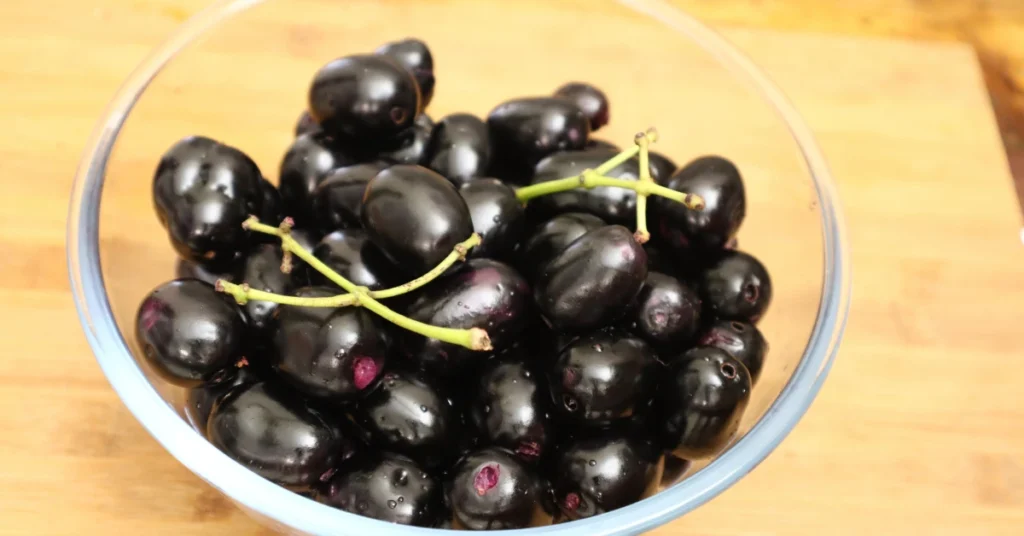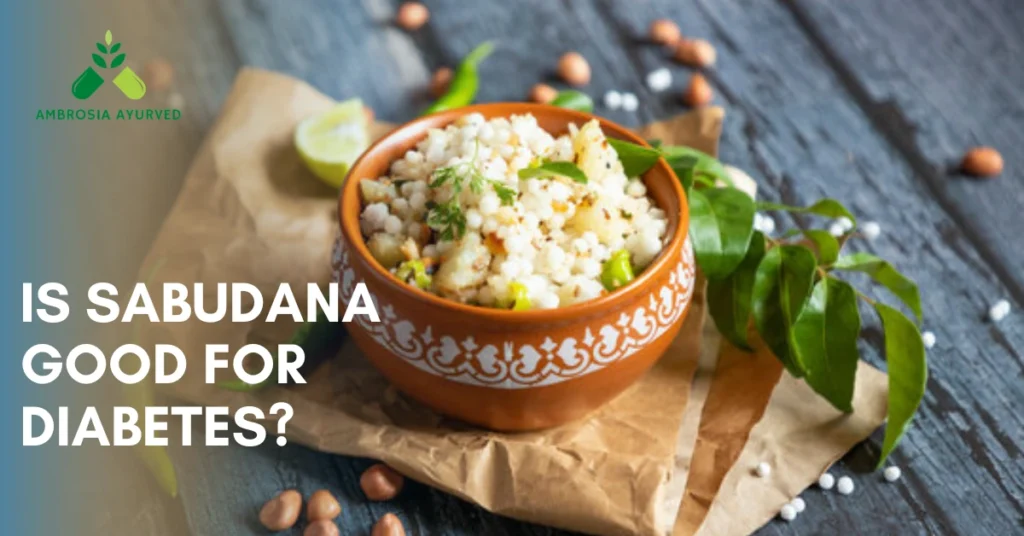Diabetes — it’s something almost everyone talks about these days, right? Whether it’s over chai or at a doctor’s appointment, the big question always pops up: What should I eat? What should I avoid? How can I keep my blood sugar in check?
In this quest, you’ll hear all kinds of tips — some swear by bitter gourd, others by fenugreek seeds. But there’s one traditional fruit many of us grew up eating, and a lot of people trust it when it comes to managing diabetes — Jamun.
But here’s the real question: Is Jamun good for diabetes?
Is it just tasty, or does it have something that helps lower fasting blood sugar?
In this article, we’re not just talking about the fruit itself — we’ll dive into the seeds, the pulp, the juice, and how you can use Jamun in your daily routine. All in simple, easy-to-understand language so you won’t need to keep googling stuff later.
Ready? Let’s find out why Jamun has become a popular natural choice for diabetics.
Table of Contents
What Makes Jamun So Special for Diabetics?
Jamun isn’t just any fruit you find in the market — it’s something special, especially for people dealing with diabetes. First off, this fruit has a unique sweet-sour taste and is mostly available during the summer season, making it a refreshing treat.
But beyond its flavor, Jamun has been trusted for generations in Indian households for managing blood sugar levels. It’s not just the fruit but the seeds (also called Jamun seeds) that have caught a lot of attention lately.
People have been using Jamun in natural medicine for years, and it’s known in Ayurveda for its ability to balance blood sugar and support overall health. So, it’s no surprise that many diabetics swear by it.
The best part? Jamun is packed with nutrients, antioxidants, and natural compounds that play a role in controlling blood sugar. We’ll get into the science in a bit, but the bottom line is — Jamun is more than just a tasty fruit, it’s a natural helper for blood sugar control.
Let’s Talk Science (But Simple)
Now, you might be wondering — what exactly makes Jamun good for diabetes? It’s all about some natural compounds found inside this fruit and its seeds.
Two of the key compounds are jamboline and jambosine. These are special substances that help slow down the breakdown of starch into sugar, which means your blood sugar doesn’t spike suddenly after eating.
These compounds help control the absorption of sugar in your body, keeping your fasting blood sugar and overall levels more stable.
Besides that, Jamun is rich in antioxidants that fight harmful free radicals and reduce inflammation, both of which are important for managing diabetes and staying healthy.
So, without getting too technical, you can think of Jamun as a fruit that not only tastes good but also naturally helps your body keep blood sugar in check.

Seeds, Pulp, Juice – What Works?
When it comes to Jamun and diabetes, people often ask: Which part of the fruit works best? The seeds, the pulp, or the juice?
Here’s the simple truth:
- Seeds: These are the real heroes when it comes to controlling blood sugar. Jamun seeds contain concentrated amounts of those natural compounds, like jamboline, that help slow down sugar absorption. That’s why many people grind the seeds into powder or take them as capsules for better diabetes management.
- Pulp: The juicy part you eat is tasty and packed with vitamins and antioxidants. While it helps with overall health and has some blood sugar benefits, it’s not as powerful as the seeds. Still, eating Jamun fruit during the season is a great way to enjoy its benefits naturally.
- Juice: Fresh Jamun juice can give a quick dose of nutrients and antioxidants. But be careful with packaged juices — they often have added sugar, which defeats the purpose! Fresh juice on an empty stomach can help, but it’s not a magic bullet.
So, if you’re wondering what to focus on, Jamun seeds deserve the spotlight — but the whole fruit works together to support your blood sugar.
How to Use Jamun for Blood Sugar Control?
If you’re thinking about adding Jamun to your routine to help manage diabetes, here are some easy, down-to-earth tips:
- Eat the Fresh Fruit: When Jamun is in season, eating it fresh is one of the simplest ways to enjoy its benefits. Just remember to eat in moderation because too much fruit means extra natural sugars.
- Jamun Seed Powder: Many people dry the seeds and grind them into a fine powder. Taking about 1 teaspoon of Jamun seed powder daily, mixed with water or honey, is a popular natural remedy for blood sugar control.
- Jamun Seed Capsules: If you’re not a fan of grinding seeds, you can find Jamun seed capsules in herbal stores — but make sure they’re pure and from trusted brands.
- Fresh Juice on an Empty Stomach: Drinking fresh Jamun juice first thing in the morning can give a boost to your blood sugar management, but avoid store-bought juices with added sugar.
- Don’t Overdo It: Like anything natural, Jamun works best when used consistently but in moderation. Overconsumption can upset your stomach or cause low blood sugar.
- Pair with a Healthy Lifestyle: Jamun can help, but it’s not a stand-alone cure. Combine it with balanced meals, regular exercise, and proper medication as advised by your doctor.
Can Jamun Alone Control Diabetes? Let’s Be Real
Look, I won’t sugarcoat it for you. Jamun is great and does help with blood sugar control, but it’s not a magic cure that’ll fix diabetes all by itself.
Diabetes is a complex condition, and managing it takes a mix of things — healthy eating, regular exercise, medicines (if prescribed), and good lifestyle habits.
Jamun works best when it’s part of this bigger picture. So, enjoy it as a natural aid, but don’t expect it to do all the work alone.
By the way, if you’re interested in other natural helpers, you might want to check out our article on Tulsi leaves for diabetes — another powerful herb known for supporting blood sugar and overall health.
So, the takeaway? Use Jamun along with a balanced lifestyle and natural support like Tulsi to keep your diabetes in check.
Who Should Avoid Jamun?
While Jamun is great for many, it’s not for everyone. If you have low blood sugar (hypoglycemia), eating too much Jamun might drop your sugar levels too much.
Also, people with allergies to berries or fruits should be careful.
If you’re on diabetes medication, talk to your doctor before adding Jamun regularly, because it can sometimes boost the effects of the medicine and cause low blood sugar.
So, simple rule — enjoy Jamun, but if you have any doubts, check with your healthcare provider first.
Conclusion
So, to sum it up, Jamun is definitely good for diabetes. It’s a natural, tasty fruit that comes packed with compounds like jamboline and jambosine, which help slow down sugar absorption and keep blood sugar levels steady.
The seeds of Jamun are especially powerful and often used in powdered form to get the best benefits. Eating fresh Jamun fruit and drinking its juice (without added sugar) can also support your blood sugar control.
But remember, Jamun alone won’t cure diabetes. It’s just one part of a bigger lifestyle picture that includes healthy eating, exercise, and following your doctor’s advice.
Also, be cautious if you have low blood sugar or allergies, and always check with your doctor before making Jamun a regular part of your routine.
Stay informed, stay balanced, and take care of yourself naturally.
FAQs About Jamun and Diabetes
Is Jamun good for diabetes?
Yes, Jamun is known to help control blood sugar levels thanks to compounds like jamboline, especially the seeds. But it works best alongside a healthy lifestyle.
Can I eat Jamun seeds every day?
Yes, many people consume Jamun seed powder daily for blood sugar control. Just start with about 1 teaspoon and see how your body reacts.
What is better — Jamun fruit, seeds, or juice?
Seeds are considered the most effective for blood sugar control. Fresh fruit and juice have benefits too, but are less concentrated.
Can Jamun replace diabetes medicine?
No, Jamun should not replace prescribed medicines. It is a natural aid and should be used alongside your doctor’s treatment plan.




